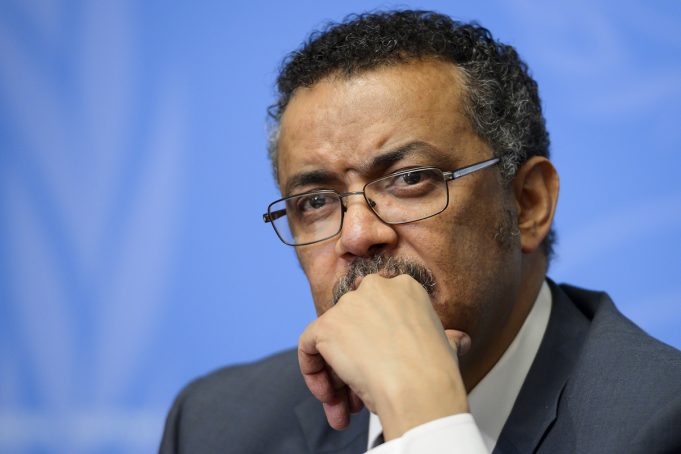GENEVA – World Health Organization chief Tedros Adhanom Ghebreyesus said late Sunday that a WHO-Palestine Red Crescent operation had managed to resupply two hospitals in northern Gaza.
He said drivers had been subjected to “humiliating security screening” and even temporarily detained at a checkpoint, “which is unacceptable”.
The WHO regularly criticises the obstacles the Israeli authorities put in the way of these supply and patient evacuation missions.
It did so again on Friday during a news briefing in Geneva specifically on the subject of this relief mission to the northern Gaza Strip.
“One-off missions are not enough. There is a sustained need for resupplying hospitals to keep them functioning,” Tedros said, reiterating his call “for sustained facilitation of humanitarian missions and ensuring safety for humanitarian staff; and for a ceasefire”.
According to the WHO, 13 patients in critical condition were transferred from Kamal Adwan hospital to Al-Shifa hospital in Gaza City.
“The hospital is overwhelmed and still serving around 60 in-patients and receiving at least 50-70 injured daily,” Tedros said.
Six other patients who had been transferred earlier from al-Awda Hospital to Kamal Adwan were also taken to Al-Shifa, along with those accompanying them.
The resupply mission also delivered 20,000 litres (5,300 gallons) of fuel to keep Kamal Adwan and Al-Awda operational, and 23,000 litres of fuel were delivered to Al-Sahaba Hospital, along with 800 units of blood and essential medicines and supplies.
The fuel is mainly used to run the hospitals’ generators to ensure power supply.
The hospital infrastructure throughout the Gaza Strip is very fragile after a year of war between Israel and the Islamist movement Hamas, with many facilities having been hit by shelling or fighting.
The Israeli military accuses Hamas, which controls the Gaza Strip and carried out the October 7, 2023 attacks in Israel that triggered the war, of operating under the cover of these buildings, which normally enjoy increased protection under the rules of war. – AFP

















